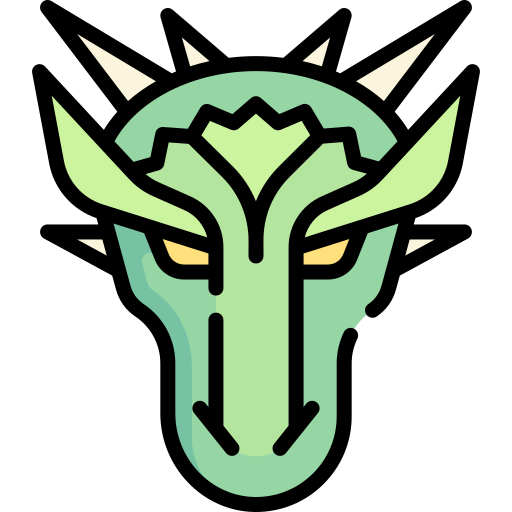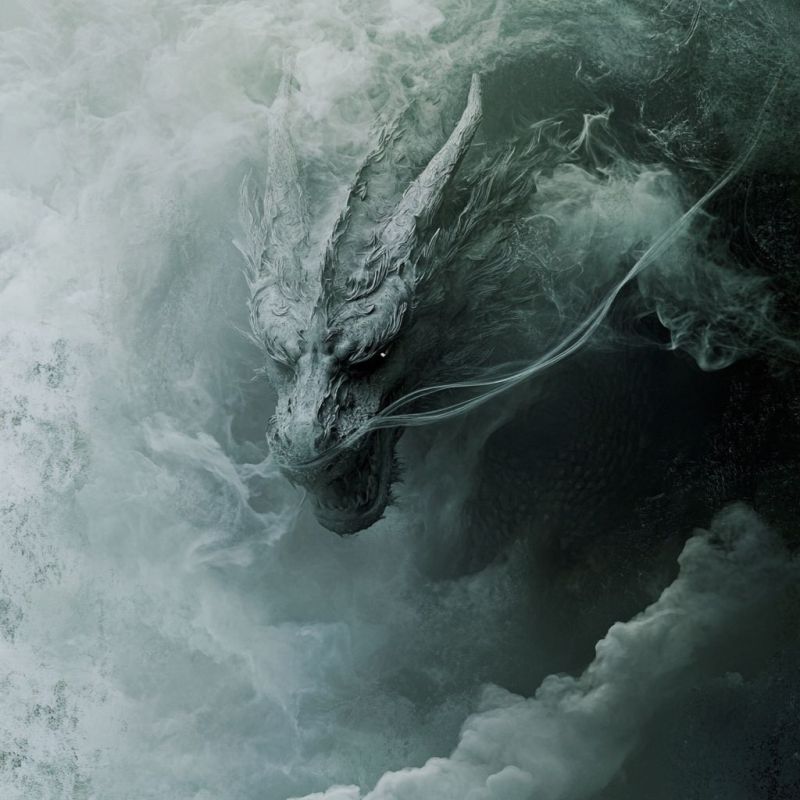 Natural Armor:
Natural Armor:-
Natural Armor +90 gp
 Natural Weapon(s):
Natural Weapon(s):-
Bite (10) (2d10)
-
Claw (2d6)
-
Tail (15) (2d8)
 Abilities:
Abilities:-
Psychic Breath Weapon (60) (12d8)
-
Wing Whirlwind
-
Legendary Defenses
 Quick Abilities:
Quick Abilities:-
Legendary Detection
 Free Abilities:
Free Abilities:-
Frightful Presence
-
 Spellcasting |
Spellcasting |
-
 |
Dreadful Illusion
|
Dreadful Illusion
-
 |
Invisibility, Adept
Phantasmal Killer
|
Invisibility, Adept
Phantasmal Killer
You witness scales that shift through violet hues, massive translucent wings spanning wide, eyes glowing amber against a shimmering form. Sharp claws extend from sinewy limbs, and ethereal smoke curls from its formidable nostrils.
A powerful illusion of a dragon capable of being summoned by advanced Wizards of Violet.
🧬 Biology & Physiology
Adult dragons are immense, reptilian beasts with rippling muscle, armored scales, and mighty wings capable of lifting their vast forms into the skies. Their size varies by species—typically ranging from 30 to 60 feet in length. Their scales are not just beautiful but nearly impenetrable, offering immense resistance to both physical strikes and magical forces.
🧠 Intelligence & Behavior
Dragons are not mere beasts—they are brilliant minds. Many possess wisdom and cunning that rivals the greatest mortal scholars and tacticians. Some can even wield arcane magic. Their behaviors differ by alignment and temperament: while some are fiercely territorial loners, others enjoy manipulating or even leading societies.
🏰 Lairs & Hoards
Dragons build their lairs in remote, formidable places—craggy mountains, ancient forests, underwater caverns. Within lies their legendary hoard: a glittering cache of gold, gemstones, magical relics, and treasures gathered over centuries. These hoards are not just wealth, but a reflection of a dragon’s pride, power, and history.
🔥 Breath Weapons
A dragon’s signature ability is its devastating breath weapon, unique to its type:
- 🔥 Fire (e.g., red dragons)
- ❄️ Ice (white dragons)
- ⚡ Lightning (blue dragons)
- ☠️ Poison (green dragons)
- 🧪 Acid (black dragons)
This power can level armies, melt stone, or scatter foes in a single exhalation.
✨ Magical Abilities
Beyond sheer physical dominance, many dragons are naturally magical. They may:
- Cast spells
- Shape-shift into other forms
- Cloak their lairs with illusions
- Control weather or natural elements
- These abilities often mirror their elemental alignment and make them even more unpredictable and dangerous.
📚 Cultural Impact
Dragons are woven deeply into the myths, religions, and folklore of countless civilizations. Some are worshipped as deities, others feared as cataclysmic monsters, and many seen as keepers of ancient secrets. Their presence often shapes entire cultures, influencing art, tradition, and legend.
🌿 Ecological Role
As apex predators, dragons dramatically shape their environments. Their mere presence shifts the behavior of other species, from prey migration patterns to predator hierarchies. Some dragons even forge symbiotic bonds, protecting smaller creatures in exchange for tribute or service.
⚖️ Alignment & Morality
A dragon’s moral alignment deeply influences its actions:
- Chromatic dragons (red, blue, green, black, white) → Typically evil
- Metallic dragons (gold, silver, bronze, brass, copper) → Generally good
This contrast defines whether they are villains to be vanquished or allies to be revered.
⏳ Lifespan & Aging
Dragons live for millennia. As they age, they grow in size, power, and intellect. The eldest—ancient or great wyrms—are beings of nearly divine might, with knowledge that spans epochs. However, their immense age also brings inflexibility and stubborn pride.
🌟 In Summary
Adult dragons are awe-inspiring forces of nature, balancing brute strength, profound intellect, and magical prowess. Whether as terrifying foes or mystic mentors, they offer endless possibilities for adventure, storytelling, and worldbuilding in any fantasy realm.
-
 Speed:
Speed:
-
 Walking Speed:
+40
Walking Speed:
+40
-
 Flying Speed:
+80
Flying Speed:
+80
 Special Senses:
Special Senses:-
 Nightsight: +120
Nightsight: +120
-
 Blindsight: +60
Blindsight: +60
 Immune to Status Effect:
Immune to Status Effect:-
 Frightened
Frightened
 Natural Armor:
Natural Armor:-
Natural Armor +90 gp
 Natural Weapon(s):
Natural Weapon(s):-
Bite (10) (2d10)
-
Claw (2d6)
-
Tail (15) (2d8)
 Extra Attack: +4
Extra Attack: +4
 Abilities:
Abilities:-
Wing Whirlwind
 Quick Abilities:
Quick Abilities:-
Legendary Detection
 Free Abilities:
Free Abilities:-
Frightful Presence
 Skill Tier 2:
Skill Tier 2:-
 Common Language Skill
Common Language Skill -
 Draconic Language Skill
Draconic Language Skill
 Skill Tier 8:
Skill Tier 8:-
 Bending Weapon Skill
Bending Weapon Skill -
 Empathy
Empathy -
 Frighten
Frighten -
 History
History -
 Inspection
Inspection -
 Magic
Magic -
 Natural Armor Skill
Natural Armor Skill -
 Natural Weapon Skill
Natural Weapon Skill
 Skill Tier 10:
Skill Tier 10:-
 Attention
Attention -
 Fortitude
Fortitude -
 Influence
Influence -
 Sneak
Sneak -
 Willpower
Willpower
